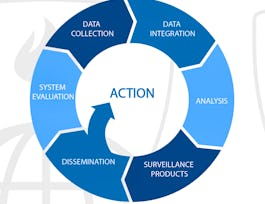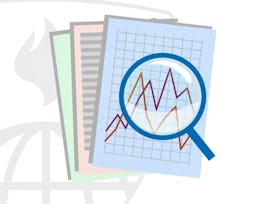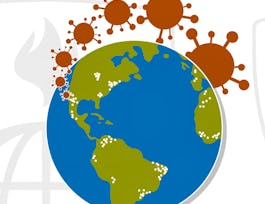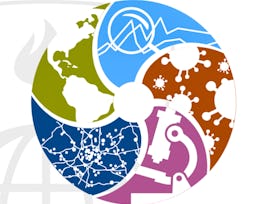Epidemiology is often described as the cornerstone science in public health. Epidemiology in public health practice uses study design and analyses to identify causes in an outbreak situation, guides interventions to improve population health, and evaluates programs and policies.


Data and Health Indicators in Public Health Practice
This course is part of Epidemiology in Public Health Practice Specialization
Taught in English
Some content may not be translated

Instructor: Keri Althoff, PhD, MPH
32,022 already enrolled
Included with 
Course
(1,170 reviews)
97%
Details to know

Add to your LinkedIn profile
4 quizzes
Course
(1,170 reviews)
97%
See how employees at top companies are mastering in-demand skills

Build your subject-matter expertise
- Learn new concepts from industry experts
- Gain a foundational understanding of a subject or tool
- Develop job-relevant skills with hands-on projects
- Earn a shareable career certificate


Earn a career certificate
Add this credential to your LinkedIn profile, resume, or CV
Share it on social media and in your performance review

There are 4 modules in this course
In this module, we will introduce the problem solving methodology. This methodology is a powerful tool that can useful when identifying a public health problem, building the case that there truly is a problem, suggesting interventions, and suggestions ways to evaluate the interventions and disseminate the findings of the evaluation.
What's included
11 videos1 reading1 quiz1 discussion prompt
In this module, we dive deeper into what lies at the heart of epidemiology: data! More specifically, we will look at routine and public health data systems.
What's included
9 videos1 quiz1 discussion prompt
In this module we will use data from routine and public health information systems to measure the burden of disease in the population. We will calculate crude mortality rates, and then apply direct and indirect age standardization methods.
What's included
8 videos1 reading1 quiz1 discussion prompt
In this module, we'll discuss health indicators, which are important measurements of the health of a population. There are numerous health indicators that help us paint the picture of a populations health. We'll talk about characteristics of good health indicators to provide a little guidance on how to choose health indicators for the public health problem of interest. Then, we'll use the example of the health indicator of liver cancer incidence to explore descriptive epidemiology. We will stratify liver cancer incidence by person, place, and time, to build our skills in descriptive epidemiology.
What's included
9 videos1 quiz
Instructor

Offered by
Recommended if you're interested in Public Health

Johns Hopkins University

Johns Hopkins University

Johns Hopkins University

Johns Hopkins University
Why people choose Coursera for their career




Learner reviews
Showing 3 of 1170
1,170 reviews
- 5 stars
76.25%
- 4 stars
18.61%
- 3 stars
3.41%
- 2 stars
1.19%
- 1 star
0.51%
New to Public Health? Start here.

Open new doors with Coursera Plus
Unlimited access to 7,000+ world-class courses, hands-on projects, and job-ready certificate programs - all included in your subscription
Advance your career with an online degree
Earn a degree from world-class universities - 100% online
Join over 3,400 global companies that choose Coursera for Business
Upskill your employees to excel in the digital economy
Frequently asked questions
Access to lectures and assignments depends on your type of enrollment. If you take a course in audit mode, you will be able to see most course materials for free. To access graded assignments and to earn a Certificate, you will need to purchase the Certificate experience, during or after your audit. If you don't see the audit option:
The course may not offer an audit option. You can try a Free Trial instead, or apply for Financial Aid.
The course may offer 'Full Course, No Certificate' instead. This option lets you see all course materials, submit required assessments, and get a final grade. This also means that you will not be able to purchase a Certificate experience.
When you enroll in the course, you get access to all of the courses in the Specialization, and you earn a certificate when you complete the work. Your electronic Certificate will be added to your Accomplishments page - from there, you can print your Certificate or add it to your LinkedIn profile. If you only want to read and view the course content, you can audit the course for free.
If you subscribed, you get a 7-day free trial during which you can cancel at no penalty. After that, we don’t give refunds, but you can cancel your subscription at any time. See our full refund policy.

